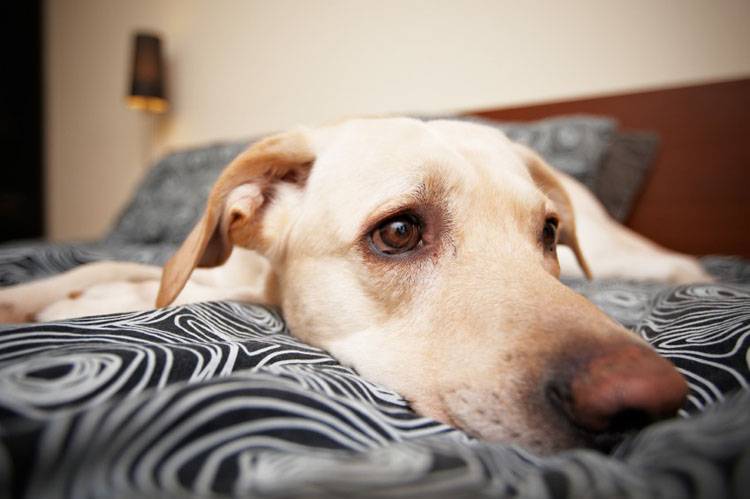Caring for Your Pet After Surgery
By Vesna Ban-Smedberg, RVT
If your pet requires surgery, such as for spaying or neutering, you should be aware of the extra care he will need to recover quickly and completely.
At the time of your pet’s hospital discharge, a veterinary assistant will go over the veterinarian’s instructions and answer any questions you may have. Below are a few tips to keep in mind when taking care of your pet after surgery.
Administer Medication
If your pet is prescribed medication, make sure you know what it is and its purpose. Every prescription should have a label that contains the following: the medication’s name and strength, administration instructions (how often and when, with or without food, shaken or diluted, etc.), storage instructions (refrigerated or not), expiration date and the veterinary hospital’s contact information.
If you miss a dose, check with your veterinarian on what to do. If this is your first time administering the type of medication prescribed, such as ear drops or a pill, ask the vet assistant to show you how before attempting it at home.
Feed Your Pet
You will also be advised on feeding. Will your pet be on a special post-op diet? This is especially important to know if you were planning on hiding the medication in something tasty. You’ll also want to know how often and how much you should feed your recovering pet.
The majority of pets will be back to normal in no time. With that said, it’s better to feed your pet smaller, but more frequent meals the first day or two following surgery. If your pet is in pain, he may have a decreased appetite. However, a complete absence of any desire for food should be reported to your veterinarian. Unless specifically instructed otherwise, fresh water should always be available.
Limit Your Pet’s Activity
After the surgery, your pet should be kept calm in order to prevent injury. If needed, you can use a crate or ask the veterinarian to prescribe a sedative. Designate a safe and quiet space for your pet’s recovery and make sure he has proper bedding.
Your pet may also be groggy due to pain medication. Make sure he doesn’t have access to the pool or stairs, and limit access to slippery surfaces, as his balance and coordination may be affected. For routine procedures, such as spaying, you will be instructed to limit activity and exercise for approximately 14 days. For dogs, this means they should be on a leash when taken outside for any reason.
RELATED: Dangerous Places in Your Home for Pets
Prevent Wound Licking
Since dogs and cats have a tendency to lick at their wounds, you need to make sure you prevent this behavior, as it can seriously jeopardize healing. Your pet should be fitted with an Elizabethan or cone collar. The cone should be longer than your pet’s muzzle so he’s incapable of reaching the wound. Bitter apple or similar bad-tasting sprays can also be topically applied to help discourage your pet from licking.
Your pet’s incision site is another concern. Usually, a veterinary assistant will instruct you on how to keep the incision site clean. Non-prescribed ointments aren’t necessary and may be unwanted. Check with your veterinarian before applying any over-the-counter ointments. If there’s a bandage, it should be kept clean and dry at all times.
Watch for Excessive Discharge
What if there is discharge? Some redness and swelling is to be expected after a procedure, as is a small amount of reddish or yellowish fluid. Inspect the sutures daily. If you notice any additional redness, swelling, foul smelling odor, excessive discharge or opening of the wound, take your pet to the hospital as soon as possible. Even the most routine surgeries can have unexpected complications so it’s better to keep a vigilant eye on your pet’s recovery.
Care Tips for Older and Weak Pets
Older or weak pets may need to have an extra hand when it comes to getting upright and even walking. A towel underneath a dog’s belly, or a belly sling, can be used to give him a boost, but only if it doesn’t cover and put pressure on the wound site. (This method is not intended for spays, as the incision is on the belly.)
Make sure to call your veterinary hospital if you have any questions or concerns. Surgery can be pretty traumatic for a pet as well as the owner, but with some tender love and care, you can make the recuperation process a lot easier on your companion—and you.
You may also like: Anaphylaxis in Dogs





